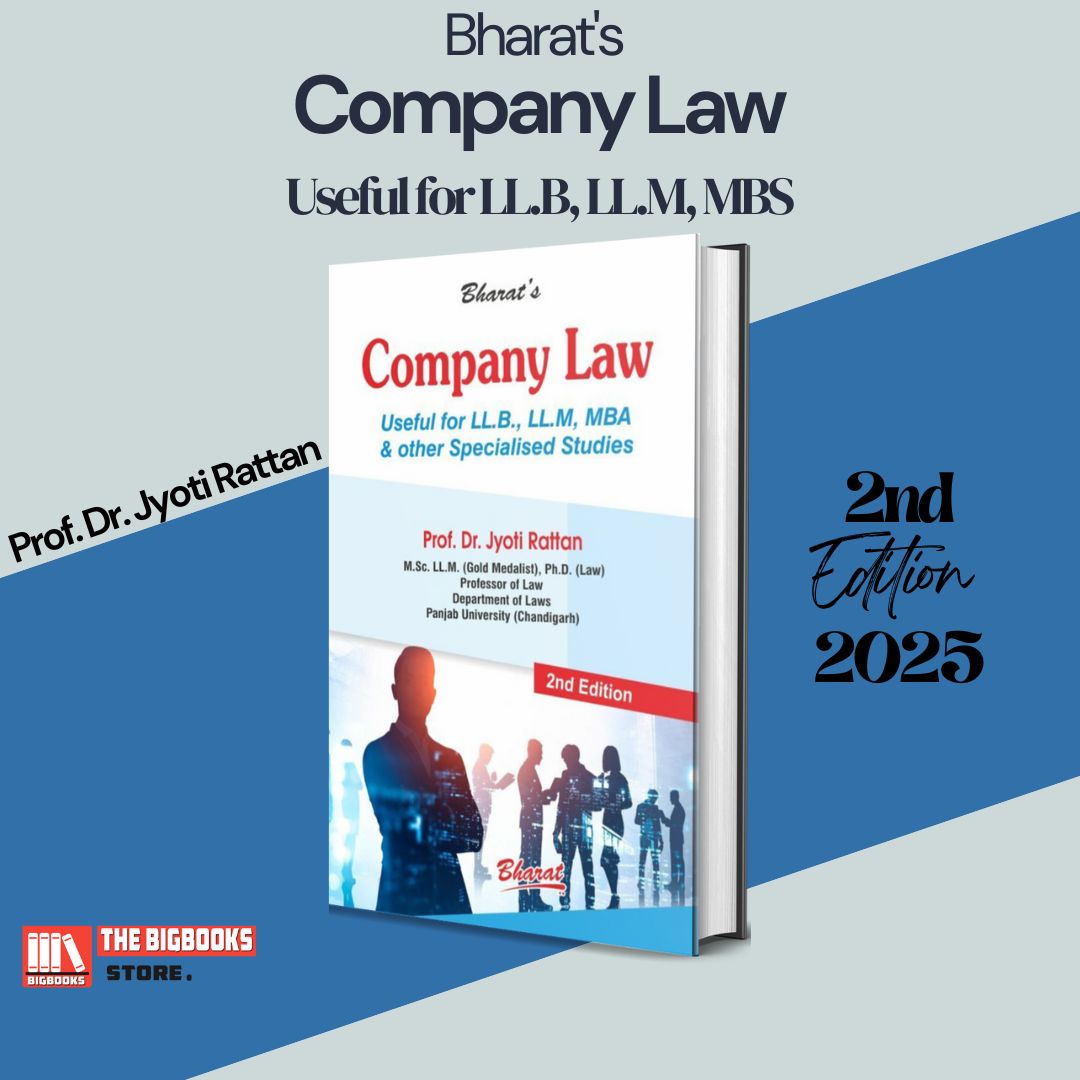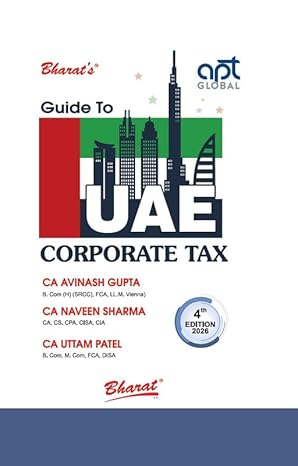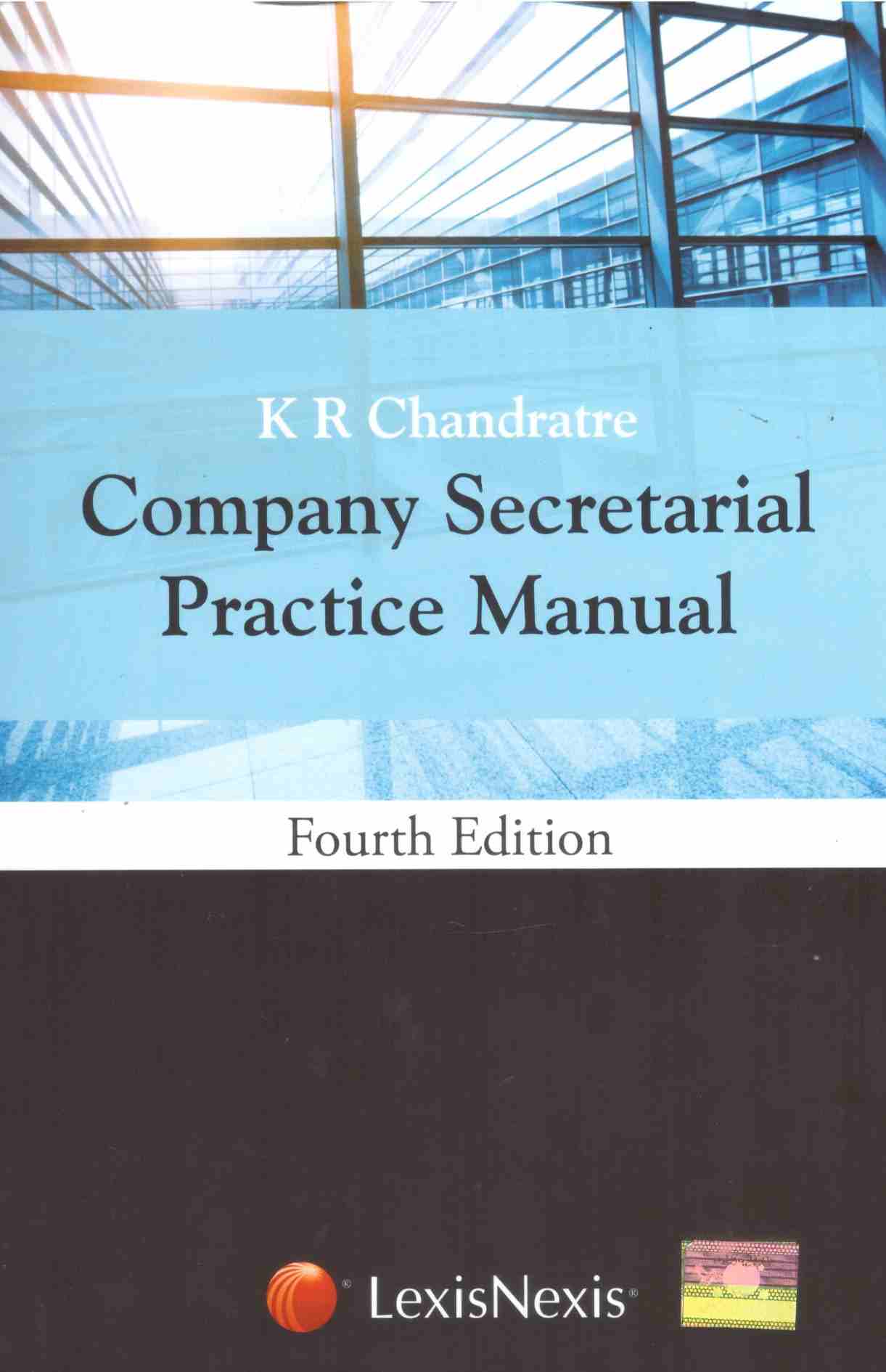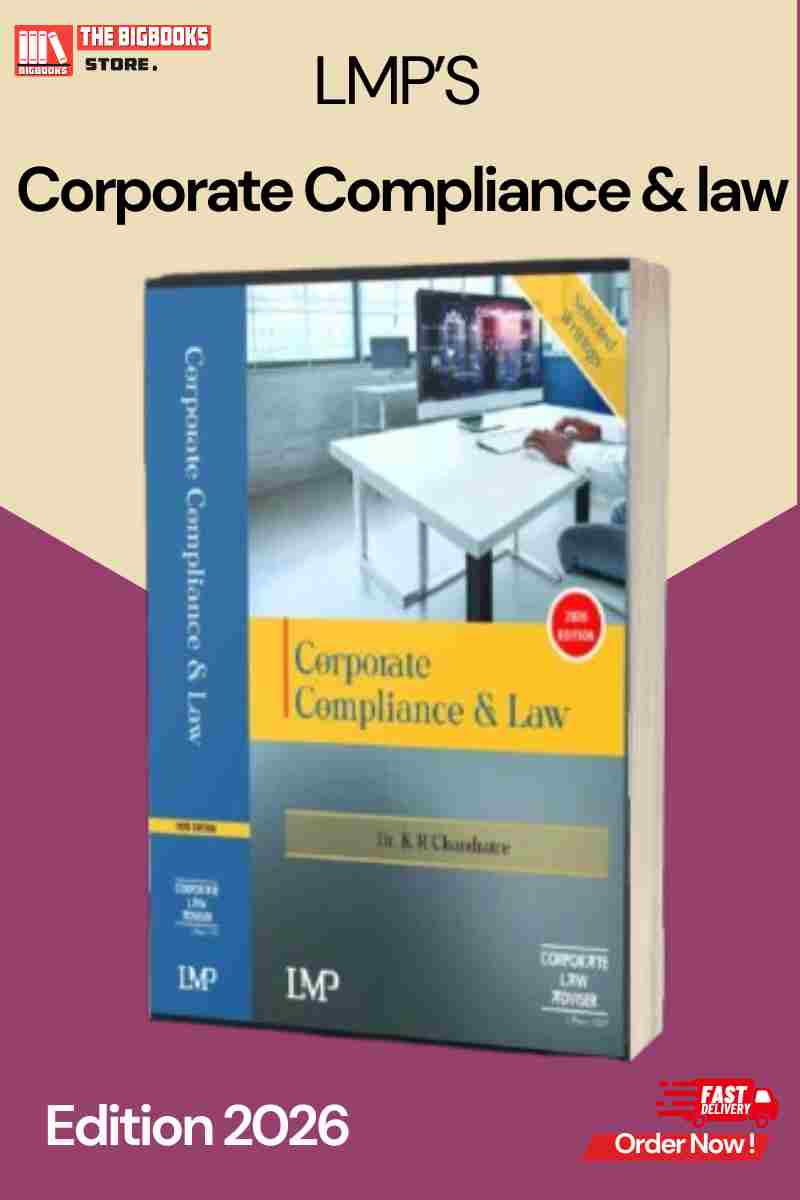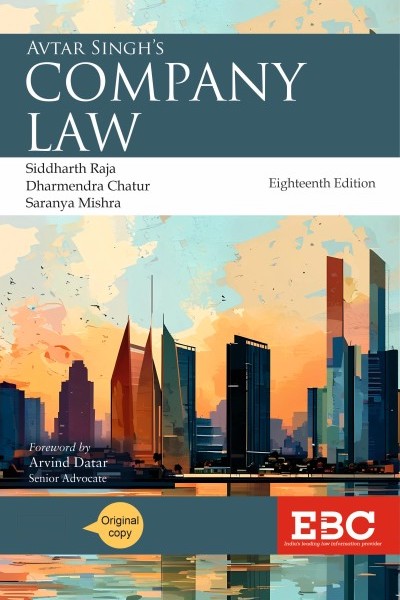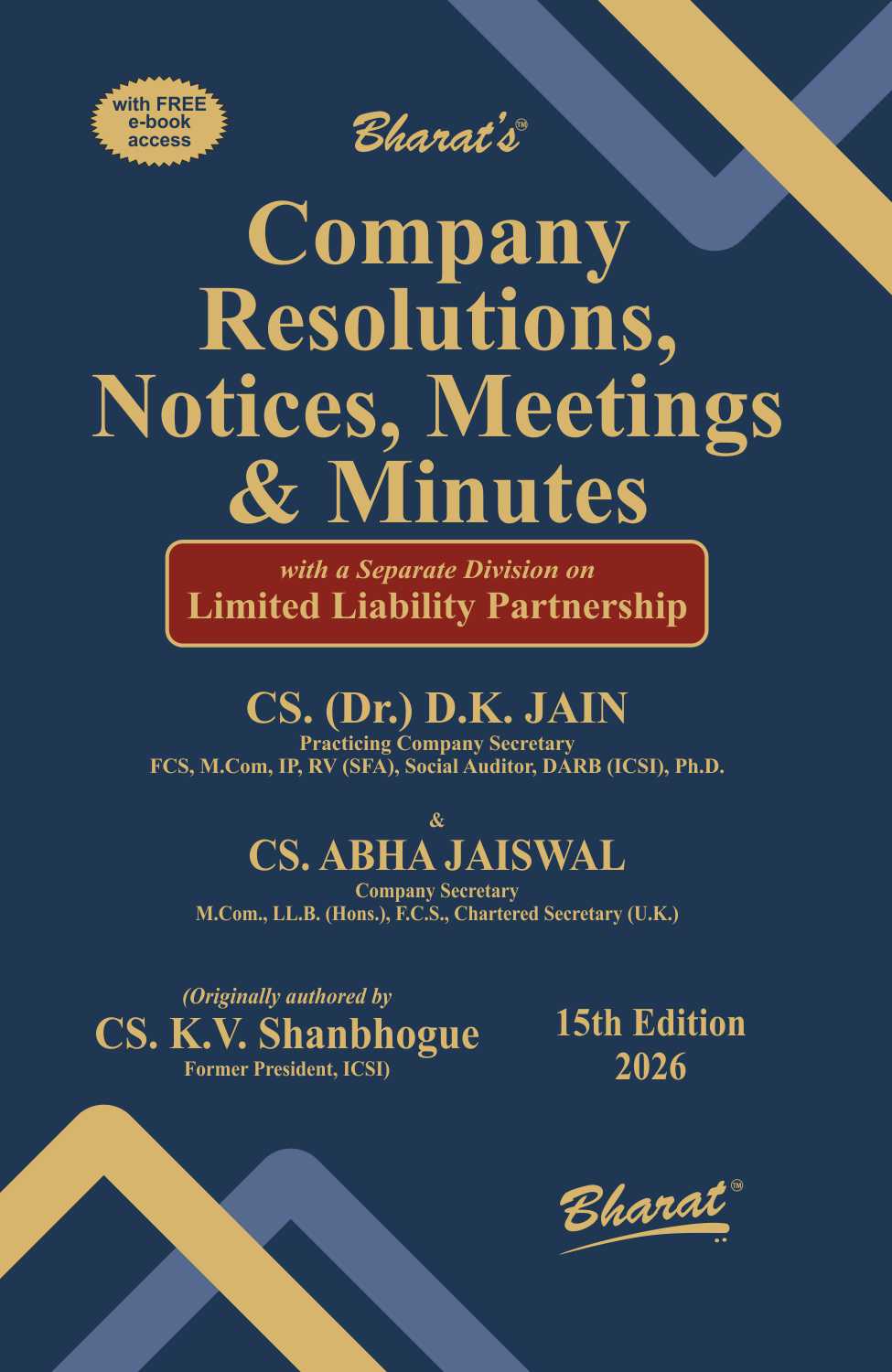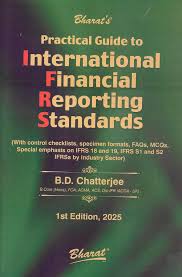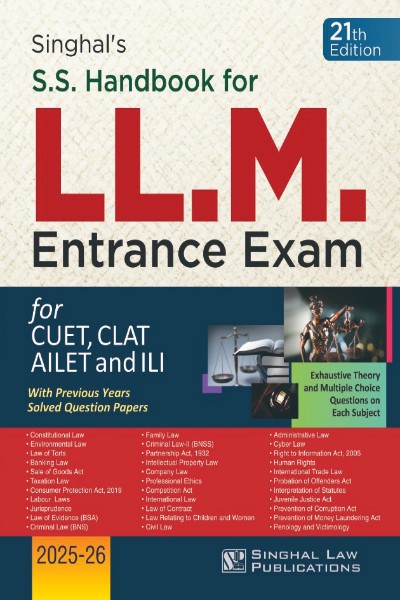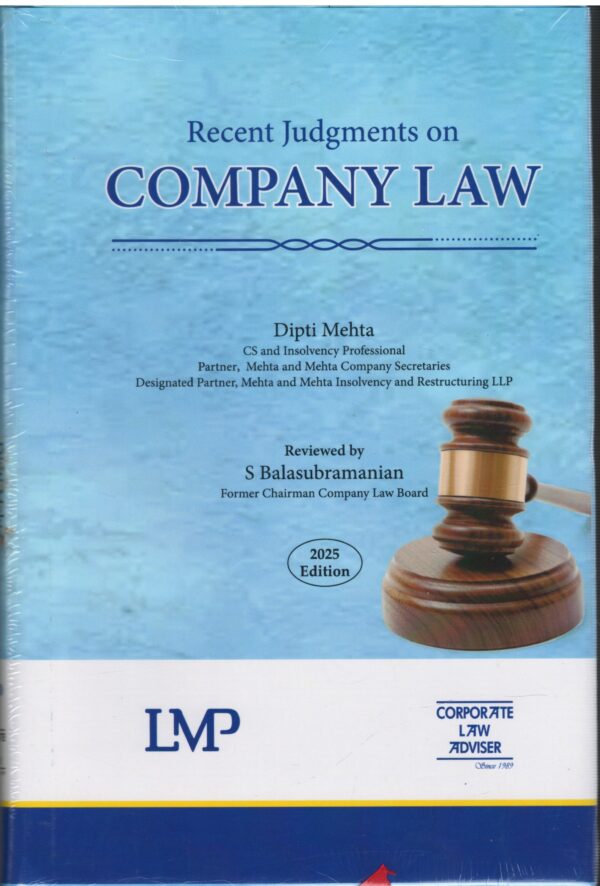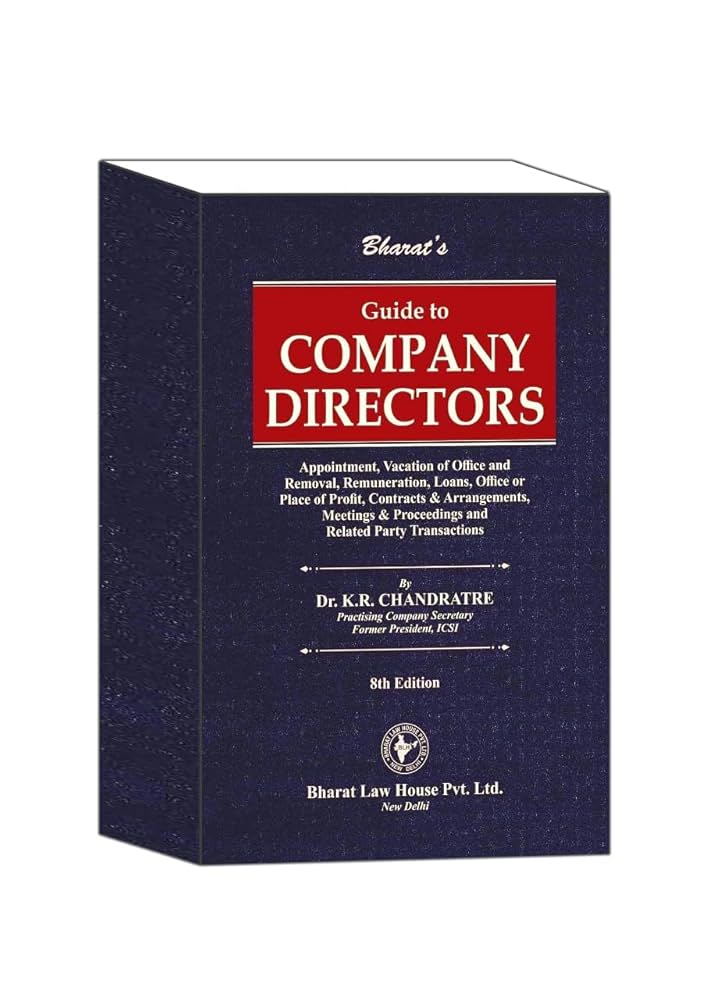Bharat's Company Law ( Useful for LL.B, LL.M, MBS ) - 2nd Edition 2025
| Author : | Dr. Jyoti Rattan |
|---|

744

English

2nd Edtion 2025
Tags: • CORPORATE LAW, • BANKING, Company Law, LLM Entrance Exam, LLB Entrance Exam, Company Law, Corporate Laws, MBA
Bharat's Company Law by Dr. Jyoti Rattan is likely a comprehensive guide designed to cater to the academic needs of students pursuing law degrees (LL.B, LL.M) and business management courses (MBS). The book would be structured to explain the principles, statutory provisions, and case law that govern company law in India. As company law is a significant area of business law, this book would offer an in-depth understanding of the legislative framework, legal procedures, and judicial interpretations governing companies, both private and public, in India.
The 2nd Edition (2025) would probably include updated provisions in light of the latest legal amendments, reforms, and judicial decisions that impact corporate law in India. It would likely be designed to be user-friendly, with clear explanations, case studies, illustrations, and examples, making it suitable for students as well as professionals who require a deeper understanding of company law.
Key Features of the Book:
-
Comprehensive Coverage: The book would likely cover all essential topics of company law, including but not limited to:
- Formation and types of companies
- Memorandum and Articles of Association
- Corporate governance and directors’ duties
- Share capital, debentures, and financial structure
- Meetings, resolutions, and corporate records
- Corporate insolvency and liquidation
- Regulatory bodies (e.g., SEBI, Ministry of Corporate Affairs)
-
Up-to-Date Information: As it’s the second edition of the book, it would reflect recent changes and updates in Indian company law, including amendments to the Companies Act, 2013, and important judicial decisions that have shaped the legal landscape.
-
Case Studies and Illustrations: To enhance understanding, the book would include practical examples, case studies, and landmark cases that demonstrate the application of company law in real-life situations.
-
Easy-to-Understand Language: The book would likely be written in a simple, clear, and structured manner, with complex legal terminology explained in layman's terms to ensure accessibility for students from various backgrounds.
-
Useful for Multiple Courses: Its relevance to LL.B, LL.M, and MBS students makes it versatile and applicable to a wide range of academic disciplines, from law to business studies.
-
Analytical Approach: It would take an analytical approach, helping readers critically assess and evaluate various aspects of company law, rather than just providing theoretical knowledge.
-
Objective-Type Questions and Practice Exercises: To assist students in exam preparation, the book may include a section of objective-type questions, practice exercises, and sample papers to test their understanding.
-
Comprehensive Index and References: A well-organized index and a list of references to other important legal resources, statutes, and academic literature would likely be included to support further research
Chapter 1 Preliminary
Chapter 2 Corporate Personality
Chapter 3 Company and Classification of Company
Chapter 4 Formation of Company
Chapter 5 Memorandum of Association (MoA)
Chapter 6 Articles of Association (AoA)
Chapter 7 MOA & AOA and Various Doctrines of Company Law
Chapter 8 Name of the Company
Chapter 9 Registered Office of the Company
Chapter 10 Prospectus
Chapter 11 Securities or Share Capital
Chapter 12 Dematerialisation of Securities
Chapter 13 Transfer and Transmission of Securities
Chapter 14 Borrowing by the Company: Debentures
Chapter 15 Borrowing by the Company: Charges
Chapter 16 Acceptance of Deposits by Companies
Chapter 17 Members and Shareholders
Chapter 18 Promoters
Chapter 19 Directors
Chapter 20 Managerial Personnel: Appointment and Remuneration
Chapter 21 Meetings of Board and its Powers
Chapter 22 Management and Administration
Chapter 23 Dividend
Chapter 24 Accounts of Companies
Chapter 25 Audit and Auditors
Chapter 26 Inspection, Inquiry and Investigation
Chapter 27 Compromises, Arrangements, and Amalgamations
Chapter 28 Prevention of Oppression and Mismanagement
Chapter 29 Registered Valuers
Chapter 30 Removal of Names of Companies from the Register of Companies
Chapter 31 Winding Up
Chapter 32 Voluntary Winding Up under Insolvency and Bankruptcy Code (IBC), 2016
Chapter 33 Companies authorised to Register under
this Act
Chapter 34 Producer Companies
Chapter 35 Companies Incorporated Outside India or Foreign Companies
Chapter 36 Registration Offices and Fees
Chapter 37 Companies to Furnish Information
or Statistics
Chapter 38 Nidhi Company or Mutual Benefit Society
Chapter 39 National Company Law Tribunal (NCLT) and National Company Law Appellate Tribunal (NCLAT)
Chapter 40 Special Courts
Chapter 41 Miscellaneous

